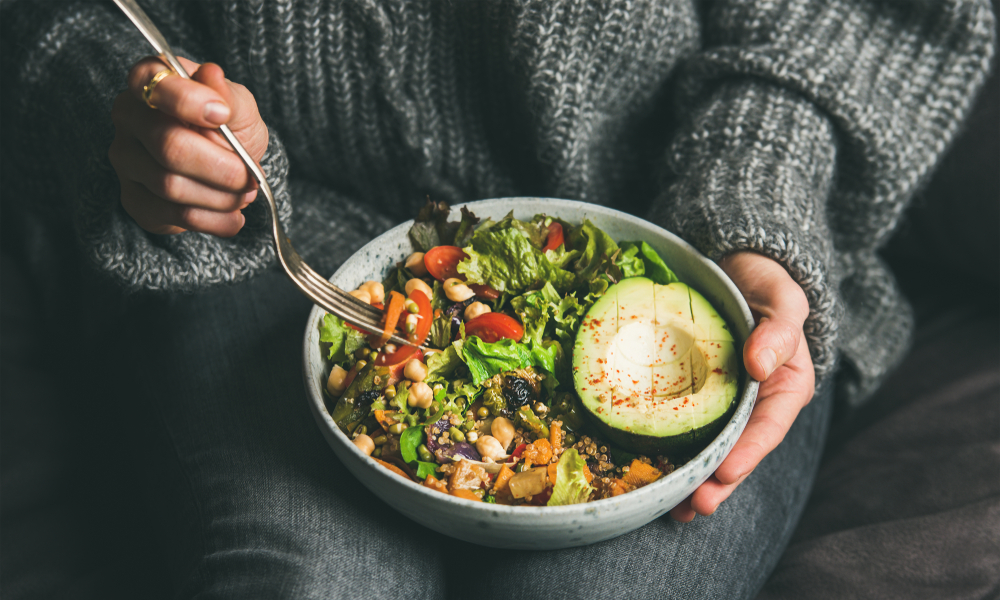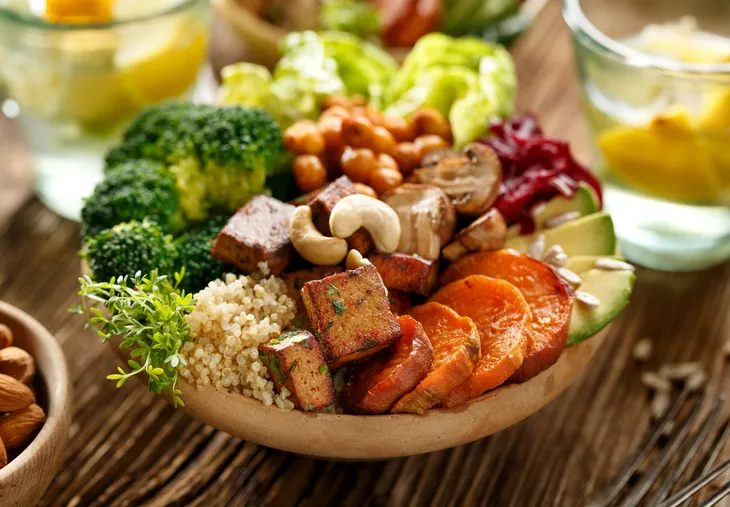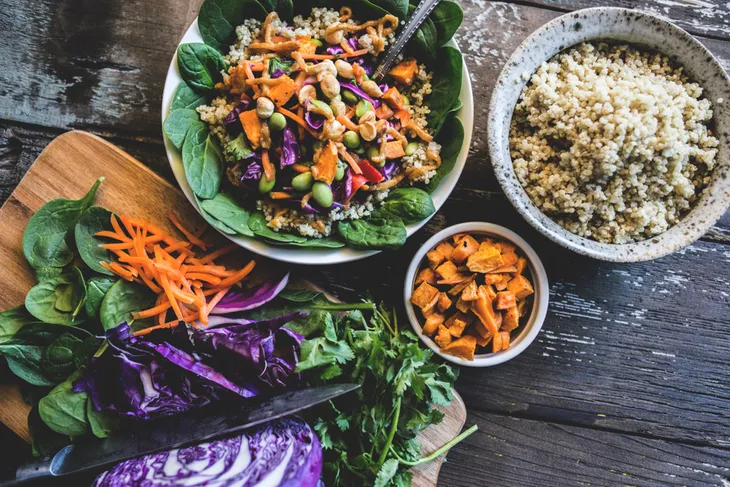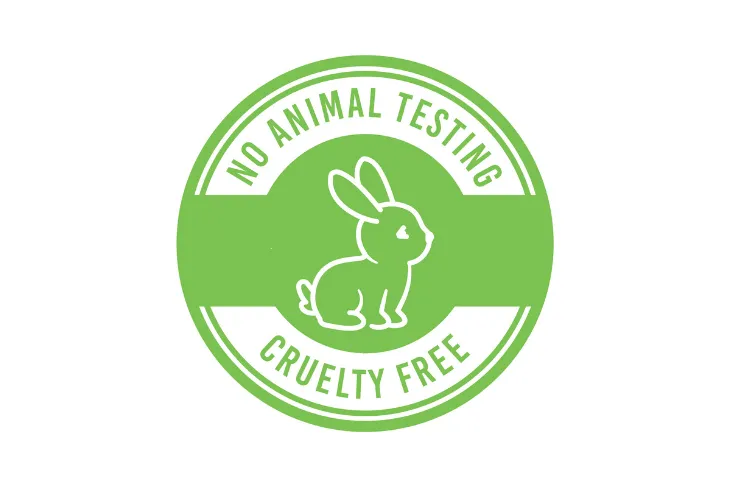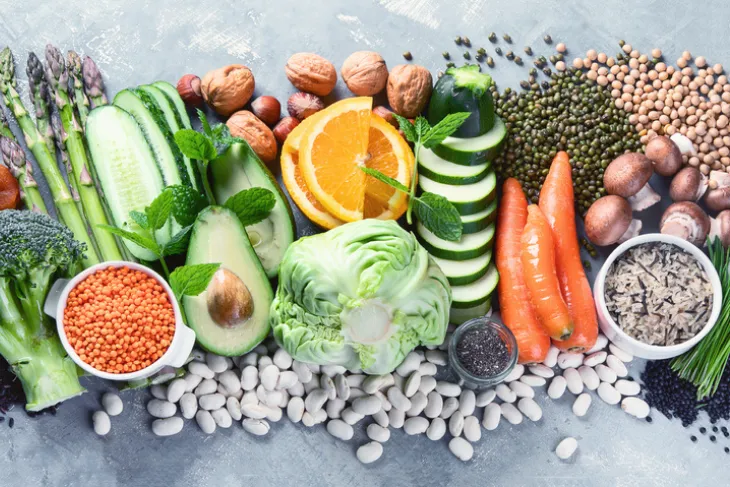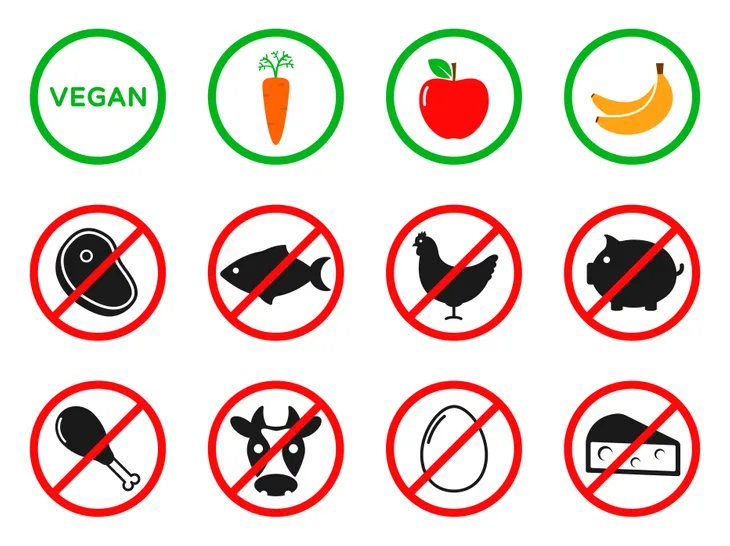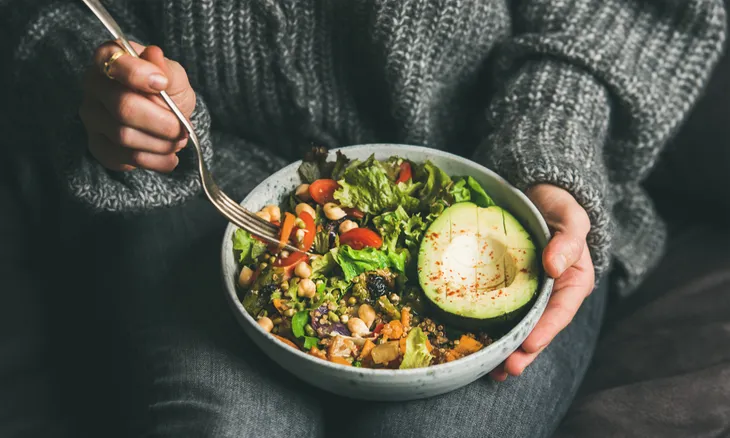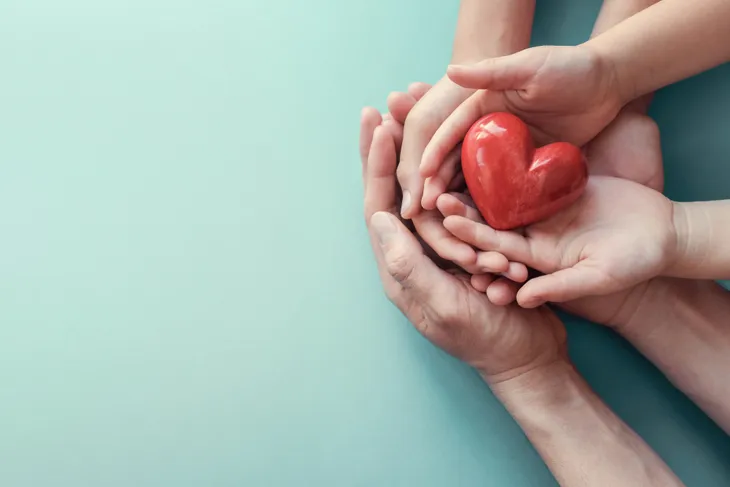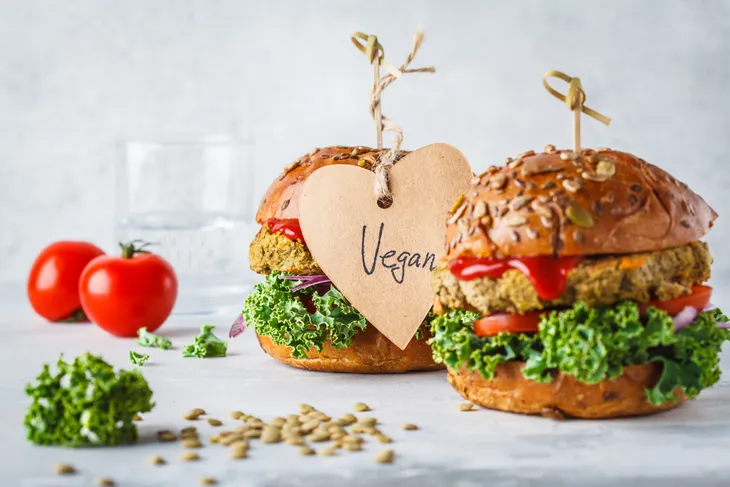Many people are choosing to limit or completely eliminate animal products from their diet. This has caused a spike in more plant-focused diets. Grocery stores and restaurants are even adding more plant-based options making this type of diet even more accessible than it was before.
Plant-based diet vs. vegan are both terms that are often thrown around to describe a diet that relies heavily on plants. This leads us to wonder, is there actually a difference between the two? In this article, we take a closer look at the terms plant-based and vegan to find out if there is actually a difference!
What Is a Plant-Based Diet?
A plant-based diet focuses heavily on eating mostly foods from plants. Although, this doesn’t just mean fruits and vegetables. Plant-based foods also include nuts, seeds, whole grains, legumes, beans, and oils.
Following a plant-based diet doesn’t mean you’ll never eat meat or dairy again either. But instead, it means you put a heavy focus on choosing foods from more plant sources. Some individuals will eat meat or dairy occasionally on a plant-based diet.
What Is a Vegan Diet?
A vegan diet eliminates all animal products entirely. This includes dairy, eggs, honey, meat, poultry, and fish.
Being vegan goes beyond the diet. Healthline explains, “Veganism is defined as a way of living that attempts to exclude all forms of animal exploitation and cruelty, whether for food, clothing or any other purpose.” This means someone who is vegan won’t buy leather furniture, wear leather clothing, or buy products that exploit animals.
Plant-Based Diet vs. Vegan: What Are the Main Differences?
Now that you have a basic understanding of the plant-based diet and a vegan diet, you might be wondering, what is the difference?
While both diets rely heavily on foods from plants, being plant-based usually refers to a person’s diet alone. In contrast, being vegan usually refers not just to diet but also describes someone’s lifestyle too. Many people who choose to adopt a vegan lifestyle usually do so because of ethics and environmental concerns, as well as a desire to improve one’s health.
Are Plant-Based Diets and Vegan Diets Healthy?
If adopted appropriately, plant-based diets and vegan diets can be healthy and offer plenty of benefits. Although it’s worth noting, vegan diets (which limit animal products entirely) may lack certain nutrients. Because of this, you may need to carefully track the foods you’re eating to ensure you’re getting enough nutrients.
Some of the nutrients you may lack from a vegan diet include vitamin B12 (naturally found in animal foods), calcium, iron, and protein. Thankfully, there are plenty of plant sources that can help you get these nutrients, and you can also take supplements to help you reach the daily recommended intake if needed.
To ensure you’re getting enough nutrients, you might want to speak with your doctor or dietician.
Can a Plant-Based Diet or Vegan Diet Be Unhealthy?
Both plant-based diets and vegan diets can be unhealthy if adopted poorly. Just because a food is labeled plant-based-friendly or vegan, doesn’t necessarily mean it’s good for you.
There are plenty of processed vegan foods like chips, cookies, and fried foods like fries that are of course, delicious but not good for your health! If you’re following a diet focused on plant-based foods but are highly relying on heavily processed foods then it won’t be good for your health.
Foods You Can Eat on a Plant-Based and Vegan Diet
On a vegan diet, you can eat any food from plants. This includes fruits, vegetables, whole grains, legumes, oils, and processed vegan-friendly foods.
The plant-based diet is much the same where you can eat any food from plants. However, on the plant-based diet, you’ll want to avoid eating meat, seafood, dairy, and eggs but you don’t have to completely omit them if you don’t want to.
Foods You Can’t Eat on a Plant-Based and Vegan Diet
Technically there aren’t any foods you can’t eat on a plant-based diet. That said, as discussed previously, you’ll simply want to avoid animal products like meat, seafood, dairy, and eggs.
Further, while following the vegan diet you cannot eat any animal products like meat, seafood, cheese, milk, and eggs. Most vegans try to avoid all forms of animal exploitation which includes bees. Therefore, most vegans will exclude honey from their diets as well.
Can You Be Both Plant-Based and Vegan?
Now you might be wondering, can someone be both plant-based and vegan? The answer is, yes! It’s more common than you think. Some individuals choose to adopt a plant-based diet and then after experiencing health benefits they become interested in other reasons for avoiding animal products such as environmental impact.
In contrast, some individuals become interested in giving up animal products like meat and material goods like leather but then later decide to adopt a plant-based diet for their health.
Health Benefits of Plant-Based and Vegan Diets
Both plant-based diets and vegan diets can offer many health benefits. Some of these include weight loss and weight management and may even decrease your risk of heart disease.
Furthermore, eating less meat can reduce your risk of stroke, high blood pressure, and high cholesterol. It may also reduce your risk of diabetes and some kinds of cancers.
Finally, a well-balanced plant-based and vegan diet can offer plenty of essential nutrients. Common staples of this diet like fruits, vegetables, nuts, and whole grains are all rich in fiber and antioxidants which are essential nutrients to help protect against certain diseases.
When to Talk to Your Doctor About Your Diet
Before changing your diet it would be a good idea to speak with your doctor to find out what a healthy diet is for you. This is especially important for anyone with an underlying medical condition.
If you’re choosing to omit animal products entirely, you’ll also want to speak with your doctor to ensure you’re getting enough nutrients, especially at the beginning of your transition. Your doctor or dietician can help you find plant sources or supplements to ensure you get what you need to stay healthy.
How to Go Plant-Based or Vegan
If you’re ready to try a plant-based or vegan diet, making the switch can be easy! You can reduce animal products entirely or you can start slowly reducing your dairy and meat intake. You could even try eating plant-based meals once a week and then gradually introduce more plant-based options.
Since the diet is so popular, finding plant-based foods and substitutes at the grocery store and restaurants is easy. Just be careful not to consume too many processed foods and try to stick to fresh, whole plant-based foods.
